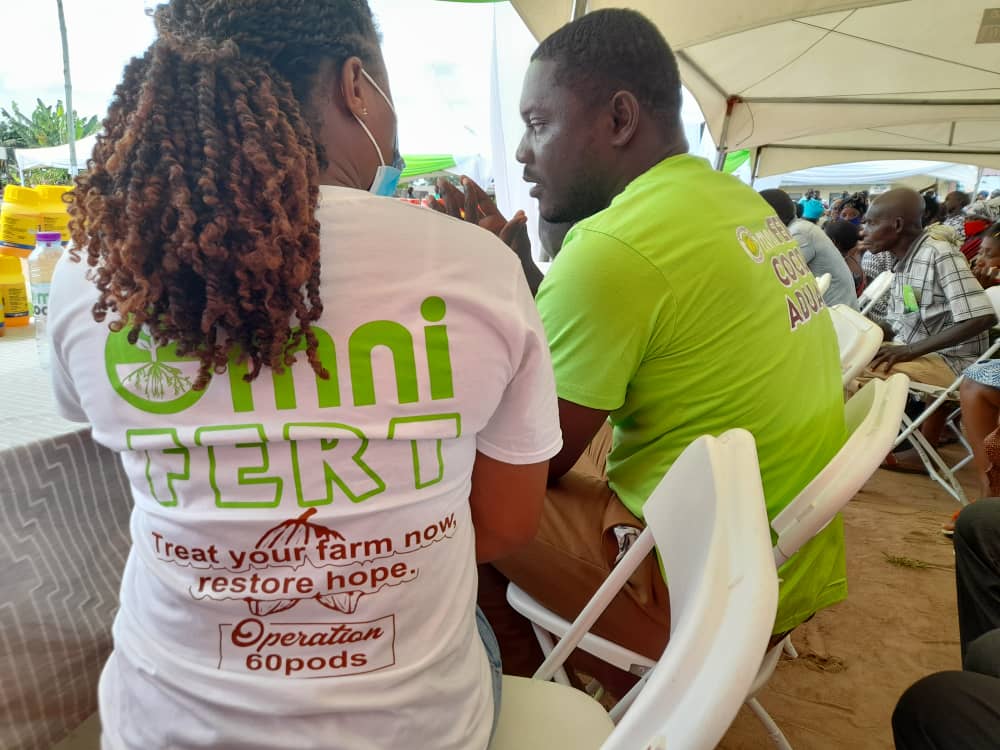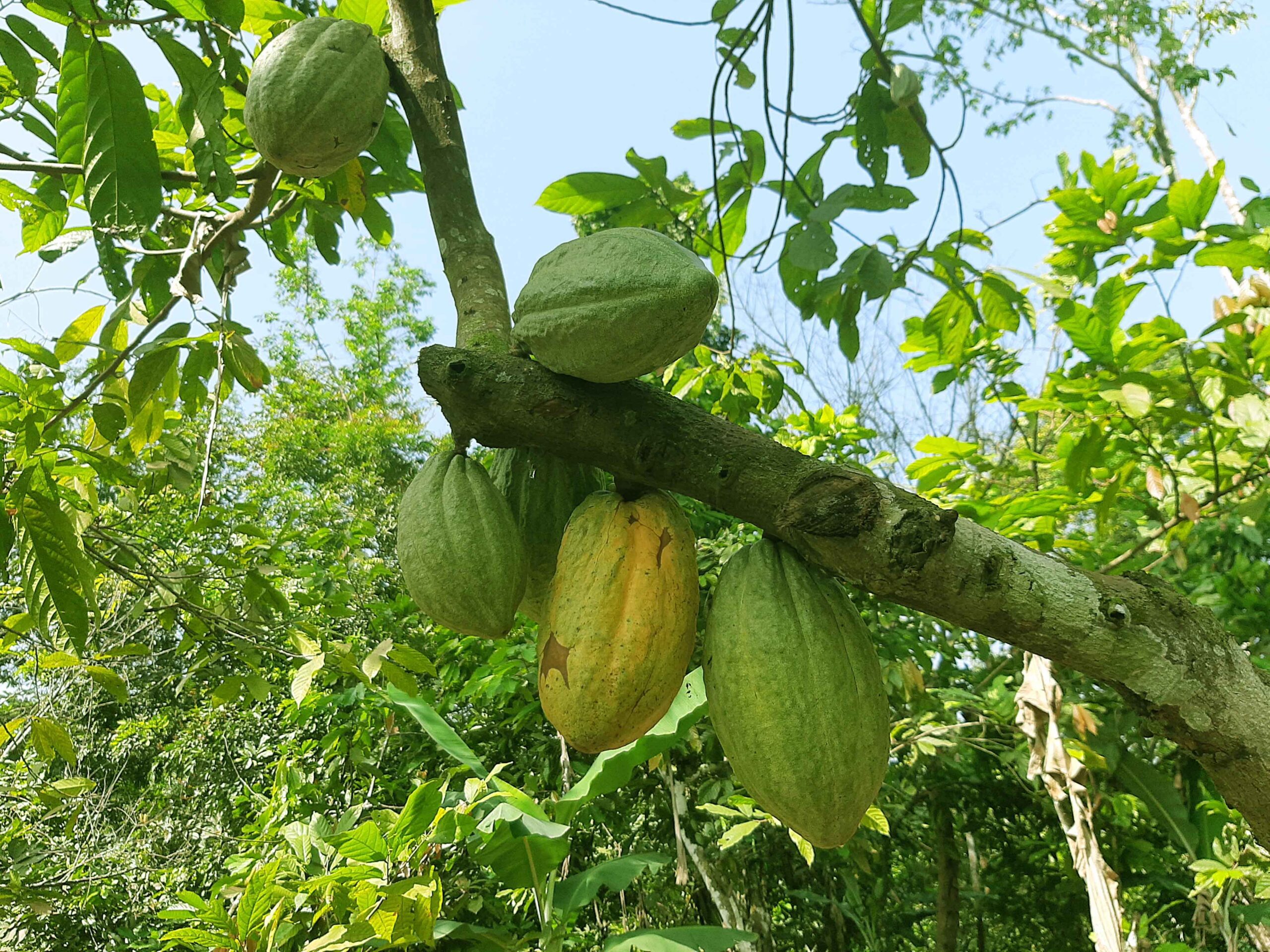According to Ghana’s Cocoa Regulator, COCOBOD, 83 per cent of all cocoa tree stock in the Nankese District of the Eastern Region have been infected by the swollen shoot virus disease (CSSVD).
This, according to the experts, coupled with unsanitary farming practices may not only have drastic implications for the future of the once vibrant cocoa district but could also seriously affect families and completely extinct Cocoa in the district.
This week sees the launch of “Operation 60 Pods” an initiative to engage Cocoa farmers in the Nankese District to make a difference to protect the future of their children.
Operation 60 pods per cocoa tree will focus on the positive contributions farmers can make to create sustainable farm practices.
The Operation 60 Pods and Treat Your Disease Farm Now will ensure that farmers give out their disease farms to be treated, and afterwards commit to good agronomic like timely weeding and effective pruning.
Already, the initiative is projecting that at least every farmer should be able to have 60 pods of cocoa on every single tree and thus should be able to realise twelve bags of Cocoa with just 400 trees per acre.
An acre of a well lined and pegged farm contains about 435 cocoa trees, 60 pods on a tree could sum up to a total of 26,100 pods.
A farmer may need 1,500 pods to produce a bag of 64 kilogrammes of Cocoa. Therefore, an estimated 26,100 pods will produce 17.4 bags which in turn translates into a whopping GHc 11,484 at the current farmgate price of GHc660 per bag.
“Every cocoa tree has the capacity of producing 240 pods, so we are going the very minimal way, that if a farmer should use prompt weeding and effective pruning without fertilizer application, without pollination, the farmer is able to make the minimum 60 and hence 12 bags should he have 400 trees”, District Cocoa Officer, Abednego Asante noted.
The Nankese District currently has 15,000 estimated Cocoa farmers with an average farmer land-holding size of 0.75 hectare which Mr Asante says is far above an acre, with 400 trees.
He, however, knows that the challenges with getting farmers to agree to cut down all their trees and to be replaced with a disease-tolerant variety will be enormous as most farms belong to families who sometimes have used their farms to secure loans.
“One of the challenges we have is that, here, the farm will be infested with this virus but yet you see some number of pods on the farm, hence the farmer feels reluctant to release it”, he stressed.
To address this challenge, the sector regulator, Ghana Cocoa Board (COCOBOD) will pay a compensation of a GHS1,000.00 per hectare and plant plantain suckers to help raise the seedlings along with labour and help farmers to maintain the farm for two years before handing it over.
“Averagely 18 months, the hybrid we are having should start fruiting, and even in our district, we have 15 months treated farm which has started fruiting. So we are saying that the district is down but not out. If the farmers will buy into our campaign and release their farms to be treated and replaced, so “Operation Treat Your Farm Now” is to restore hope. Because we know that if every family has a cocoa farm, the family has hope, but the hopes will be dashed once we allow the disease to bring it down. But allowing it to be treated and replaced means we are bringing back the hope of the family”, said Mr Abednego Asante.
The “Operation 60 Pods” productivity initiative is being undertaken in partnership with OmniFert Limited, a total Agri solutions provider.
OmniFert as part of its long-standing aim of improving the lives of the Ghanaian farmer has been providing nutritional and crop protection formulations to protect the cocoa bean and increase the bean per pod and even ensure more pods per tree.

Business Development Manager for OmniFert, Mr Dominic Donkoh explained why OmniFert is supporting the project.
“We have a unique formulation for Cocoa production which is 7/32/20, it means that it has 7 per cent of nitrogen, 32 per cent of phosphorus and 20 per cent of potassium which is very unique and needed, very essential in cocoa production”, Mr Donkoh observed.
He continued, “so if we are able to provide the farmers with this unique formula and also, we have one of the best crop protection products on the market, both for fungus and insects, a combination of all these will really contribute to the farmer achieving the said target of 60 pods per tree or even more”.
OmniFert has for the past two years been visiting all cocoa growing areas and cocoa cooperatives to give technical support services and necessary inputs.
Mr Donkoh said their involvement with the program will only augment their strategy to reach more farmers and increase their yield per hectare.
Operation 60 pods per Cocoa tree when fully imbibed by farmers in Nankese will produce about 22,000 metric tonnes of Cocoa in a season, this means that Ghana could be hitting 1.5 million metric tonnes if the practice is replicated in all its 70 Cocoa districts of the country.
